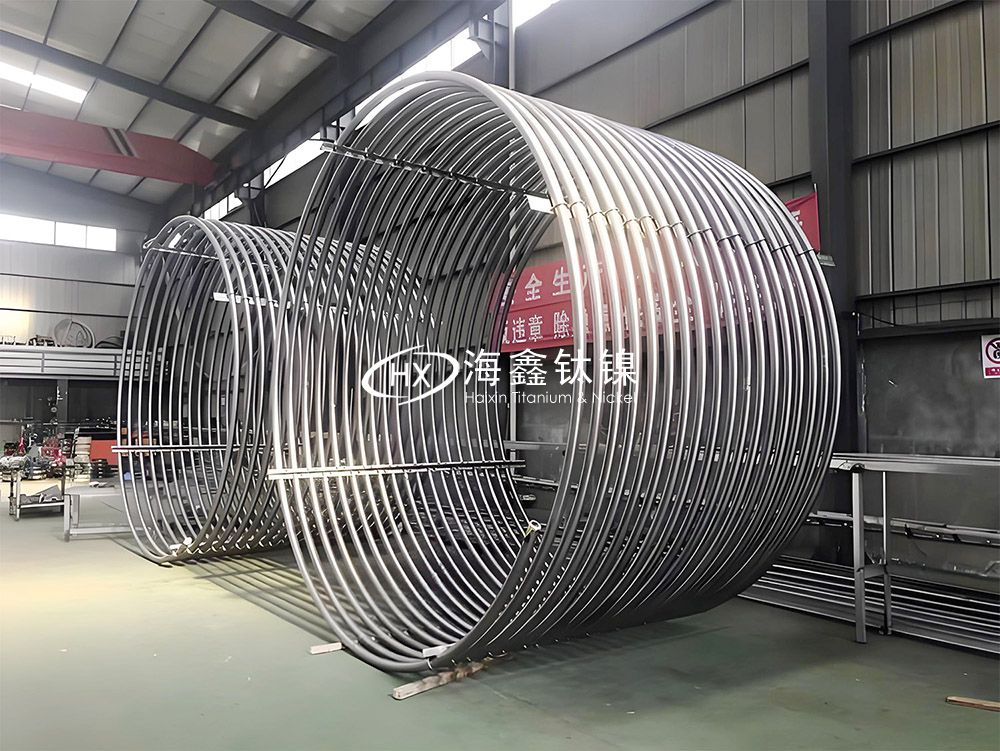1.Chemical Industry
Titanium exhibits excellent stability in various acids, alkalis, salts, and highly corrosive aluminum chloride. As a superior corrosion-resistant material, it is increasingly used in the chemical industry. For example, titanium anodes and titanium wet chlorine gas coolers in the chlor-alkali industry have achieved significant economic benefits, marking a revolution in this sector.
2.Petroleum Industry
Titanium demonstrates exceptional stability in organic compounds (except for five organic acids—formic, acetic, oxalic, trichloroacetic, and trifluoroacetic acids at elevated temperatures). Titanium plates serve as excellent structural materials in petroleum refining and petrochemical industries for manufacturing heat exchangers, reactors, high-pressure vessels, and distillation towers.
3.Metallurgical Industry
As an active metal with strong gas absorption properties, titanium is an effective degassing agent in steelmaking. Adding small amounts of titanium to steel enhances its toughness and elasticity. Titanium is also a critical alloy additive in steel and aluminum production, a common superconducting material, and widely used in hydrometallurgy (e.g., electrolysis of copper, nickel, cobalt, and manganese) due to its stability in acidic solutions with metal ions.
4.Fertilizer Industry
Urea, a vital fertilizer, involves highly corrosive mixtures (urea, ammonia, ammonium carbamate) under high temperature and pressure. Replacing stainless steel with titanium significantly extends equipment lifespan and reduces maintenance downtime, making titanium equipment essential in urea production.

5.Power Industry
Titanium’s stability in chloride- and sulfide-containing corrosive hot water has led to its widespread use as cooling tubes in heat exchangers for thermal power plants. Replacing cupronickel tubes with thin-walled titanium tubes improves service life and reduces maintenance, yielding substantial economic benefits.
6.Paper and Textile Industries
Titanium resists corrosion from bleaching agents like chlorine dioxide, chlorous acid, and chlorites. It is crucial in bleaching equipment for textiles and paper production. For example, titanium-made chlorine dioxide bleaching machines perform exceptionally. Titanium is also used as spinnerets in synthetic fiber production.
7.Medical and Pharmaceutical Industries
Titanium’s gas absorption properties make it valuable in high-vacuum and electronic vacuum technologies. Its biocompatibility (resistant to human body corrosion and non-toxic) enables widespread use in medical devices and pharmaceuticals.
8.Seawater Desalination and Shipbuilding
Titanium surpasses all other metals in resisting seawater corrosion, maintaining stability in both static and high-flow seawater. It is ideal for seawater desalination plants and shipbuilding due to its strength, lightweight, and corrosion resistance against seawater and marine atmospheres. Titanium is extensively used in submarines, naval vessels, and marine components.